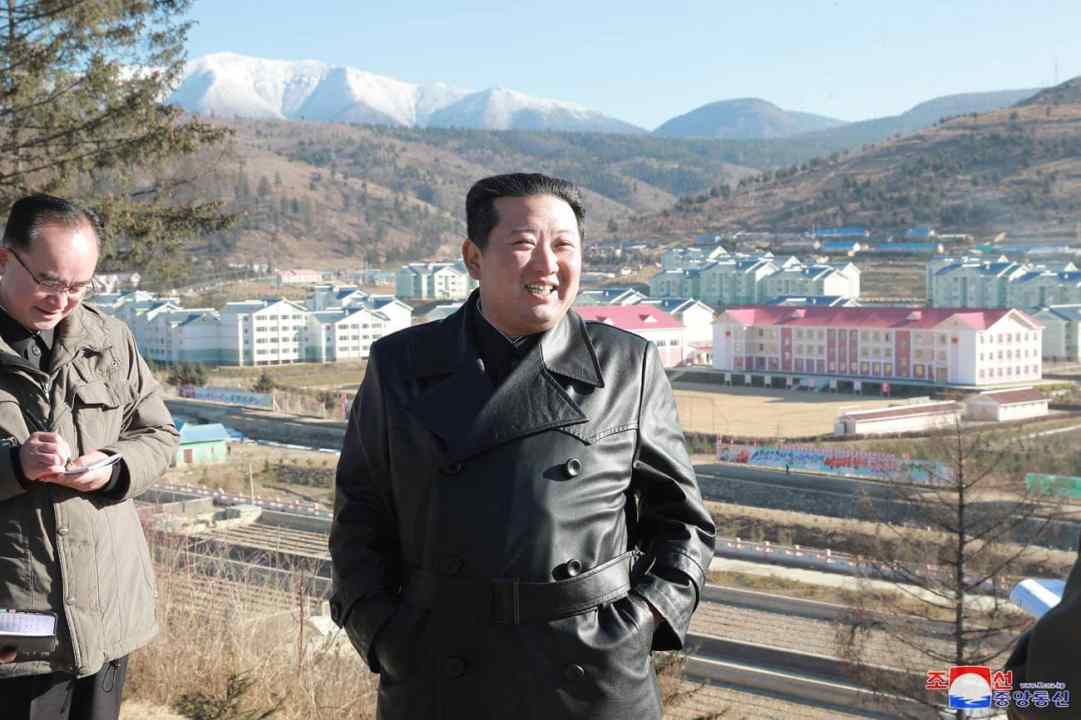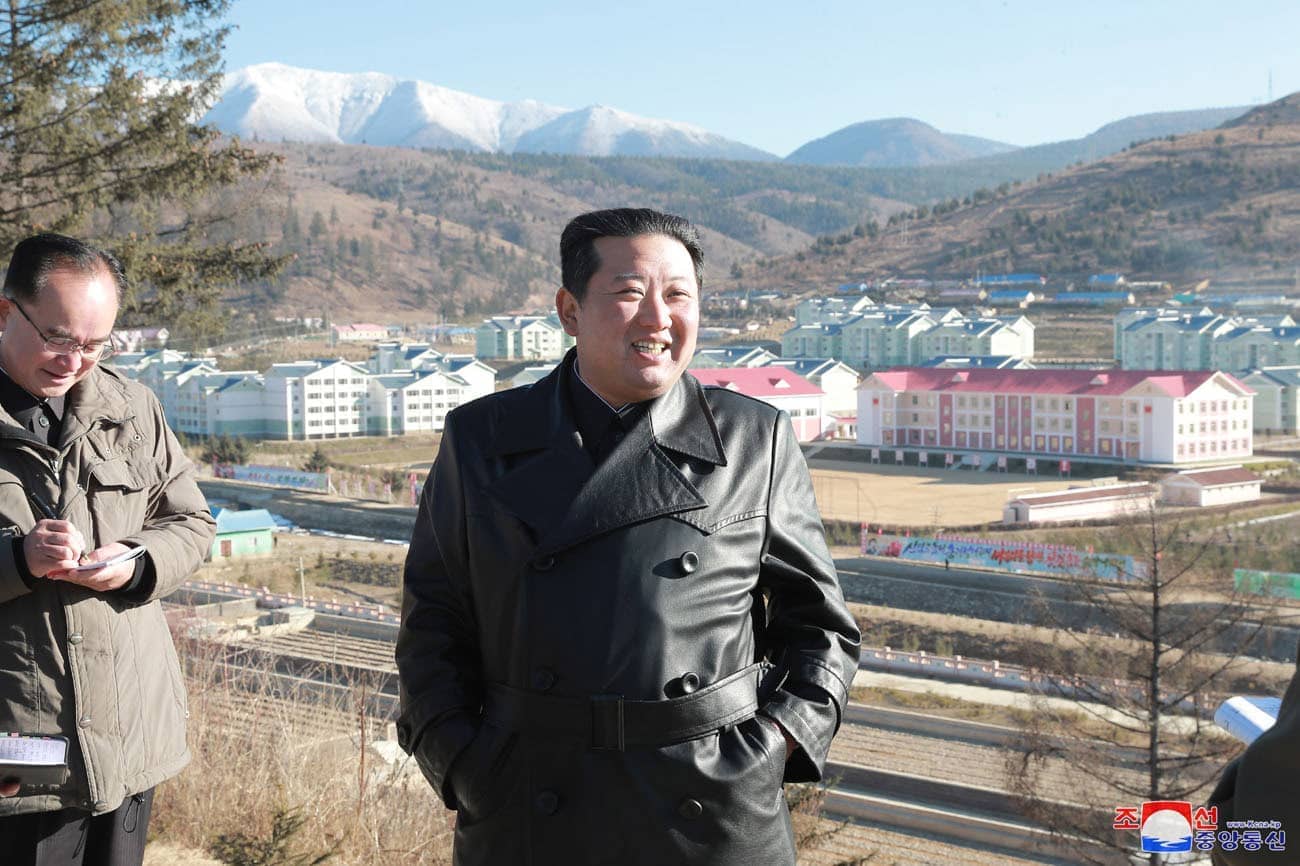During the Trump years, North Korea was hardly ever out of the news. From the US President’s threats of ‘fire and fury’ against the rogue state, to dramatic meetings with Kim Jong-un in Singapore and Hanoi, the world’s attention was firmly focused on Pyongyang. But with Trump out of office, the chaos of Covid-19, and the fall of Afghanistan, North Korea has fallen off the agenda. That could well be a terrible mistake, considering the state’s pressing humanitarian crisis.
Following the coronavirus outbreak last January, North Korea shut its borders almost completely. As a result trade with China, by far its biggest economic partner, has decreased by at least 80 per cent. In the third quarter of this year, the country’s entire trade with nearby Russia was only a pitiful $651 (£480) – by contrast, this trade totalled $34 million (£25m) in 2018. There are reports of sky-high inflation, with prices for essential goods in Pyongyang rocketing. In June, shampoo was being sold for $200 (£148) in the capital. Even by North Korean standards, the economic situation is dire.
Hand-in-hand with these developments are worrying food shortages. Covid-related restrictions on imports, combined with torrential rainfall last August that devastated rice fields, has jeopardised North Korea’s already weak supply-chains. None of this has been helped by the regime spending the majority of the pandemic turning away food parcels from other countries in case they were infected with Covid. Little wonder the US Department of Agriculture predicts that around 60 per cent of North Korea’s 25 million-strong population is ‘food insecure’.
In June, shampoo was being sold for $200 in the capital. Even by North Korean standards, the economic situation is dire
Kim Jong-un himself, who only recently re-emerged from one of his longest-ever spells away from the public eye, has drawn parallels between the current situation and that of the ‘Arduous March’. This refers to the terrible famine of the 1990s, when at least hundreds of thousands – and potentially millions – died from malnutrition and food shortages. According to Kim, ‘every grain of rice’ must now be preserved.
I travelled to North Korea in 2019. Even by then it was clear that UN sanctions, introduced in 2017 after a round of intercontinental ballistic missile tests, were taking their toll on the county’s already undeveloped economy. These measures made the vast majority of commerce impossible. The regime was forced to rely on a trickle of trade across the Chinese border and some illegal trade at sea. Massive restrictions on crude oil imports meant the country simply couldn’t sustain a serious amount of manufacturing, or indeed generate sufficient amounts of electricity for everyday living. Driving through the nation’s beautiful countryside revealed an agricultural industry that remained largely dependent on mules, and peasants undertaking brutal manual labour. It isn’t hard to see how such a country, when facing all the consequences of a global health crisis, could quickly find itself in serious trouble.
When I was in Pyongyang, by far the country’s richest city, there were frequent power outages – including in the prestigious restaurants frequented by the regime’s privileged few. In the ancient city of Kaesong, hotels were unable to provide hot water; on the east coast in Majon, there was no running water at all. If this was the situation two years ago – in carefully controlled environments designed to make the regime look good to foreign tourists – what must the reality today be for average North Koreans living in tiny, isolated settlements that have had to face a string of disasters?
Apart from a handful of Chinese diplomats, there are hardly any foreigners left in North Korea, so it is hard to know exactly what the circumstances are like on the ground. But it does not take a genius to guess how desperate things really are. As John Everard, a former British Ambassador to North Korea, recently told me: ‘quite how grim it is we don’t know, but there does seem to be a real risk of people actually succumbing to food shortages.’
What can the international community do to help avert a potentially catastrophic series of events? Dealing with North Korea can be very challenging, given how concerned the regime is with saving face and maintaining its own authority. In the past, the authorities in Pyongyang have demanded that foreign humanitarian workers don’t emphasise that their aid has come from abroad. This has often been a precondition for allowing UN staff and NGOs to work in the country. These (pathetic) demands should be met. Whilst some hawks express uneasiness at allowing the Kim clan to gain credit for food provisions, this should be a secondary concern to feeding those in grave need. Anyway, North Koreans aren’t stupid: they know that if a big bag of rice suddenly appears in their village, it hasn’t been magically conjured up by the central government – no matter what the propaganda may say.
We should also be looking at how we are enforcing the sanctions that are currently in place. A common opinion is that severe economic hardship is an opportunity to press harder for denuclearisation. But this is fanciful, and potentially dangerous, thinking.
At this stage, despite the appalling economic situation, it is simply inconceivable that Kim would consider pausing or diminishing his nuclear programme. Not unreasonably, the regime – looking at the fate of people like Saddam and Gaddafi – views nukes as their sole means of survival. Besides, the testing of nuclear weapons is pretty much the only thing the regime has done ‘well’. The country’s nukes are frequently touted in propaganda as symbolic of Kim’s power and ingenuity. In this sense, they are the bedrock of his authority. If Kim is presented with a choice between feeding his people, and keeping his nukes, he will choose the nukes. Could we tolerate the consequences of this?
Whilst we shouldn’t be shy in maintaining economic pressure on North Korea, we cannot overreach. As in Afghanistan, there is a real risk that legitimate sanctions will only make the lives of some of the world’s poorest people even bleaker – and push them closer to the precipice. The United Nations Committee responsible for North Korean sanctions recently stated that ‘the sanctions imposed by the Security Council […] are not intended to bear a negative impact on the people of North Korea.’ It should therefore waste no time in granting exemptions and waivers for those trying to bring in essential supplies, or undertaking urgent relief. Frankly, when it comes to sanctions and economic pressure, the West should blink first.
The situation in North Korea must be given the attention it needs. We are facing a situation where millions of the world’s poorest and most oppressed are on the edge of famine. For now, all other considerations must be placed to one side. The priority must be getting food in the mouths of those wretched souls who have the misfortune of living in that bleak place.







Comments